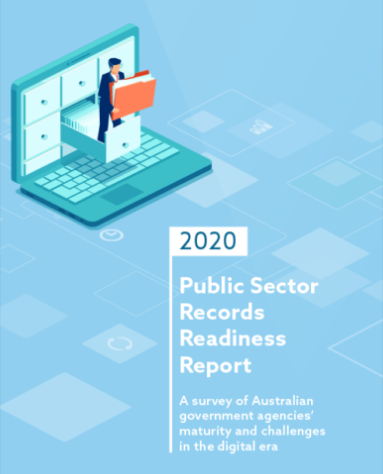Late last year, AvePoint worked with research firm Ecosystm to interview 100 public sector records managers to understand their challenges and exactly where they sat in managing records in the digital era. Some of these results were expected and some were a real surprise. You can check out the whole report here but I’ve also detailed a few of the things that I found really interesting.

1. 100% of respondents said they were either very confident (60%) or somewhat confident (40%) that their agency systems were being managed according to applicable records management compliance standards.
At the same time, only 23% of people said they were transferring records to an archival authority, which is an important component of compliance. In fairness, there could be many reasons for this. Possibly the organisation does not have eligible records to transfer, or the archival authority is not currently accepting transfers. What was interesting in some of the follow-up questions was this result: 41% of people said they didn’t know why they hadn’t transferred eligible records.
That’s a significant percentage. 100% of people say they are meeting compliance requirements, but almost half of those also say they don’t know why they are not transferring. I think there is a real disconnect between confidence in compliance and what is happening on a day-to-day basis. Again, I want to stress that there may be very good reasons for not being able to transfer records to an archival authority; I’m just not as sure that there is such a good reason for not knowing why.
2. 31% of respondents said they have updated information governance practices and policies.
This was a figure that stood out to me even more than organisations not transferring records. Again, talking about “compliance confidence”, in practice this confidence doesn’t seem to reflect working practice. Keeping up to date with information governance policies is a really important component of an effective information management program. This is to account for changes across an organisation, changes to compliance requirements, and changes to technology. Regular reviews and updates of this should be something records managers keep on top of to ensure that your policies reflect the rapidly changing environment we’re working in currently.

3. Over the next ten years we should see almost all records being stored electronically
Organisations projected that in the next ten years, 96% of content will be stored and managed electronically. My first office job (a long time ago) involved lots of talk around a “paperless” office, but it looks like we might be finally getting closer to actually having this! With lots of jurisdictions actively encouraging (mandating in some cases) digital transformation, this is a really positive sign that it’s working and we’re definitely well on the way to working in a far more electronic environment.
4. Complex records management processes are still a major concern
69% of respondents cited complex processes as a barrier to records management adoption. 63% said change management was an issue and 62% said that users didn’t understand the systems that were in place. All three of these results point to the same things: Users don’t want to be records managers. Traditional records management tasks are not intuitive to users and they are not interested in engaging with them. Records management is really important, so tackling this challenge is also a really important thing.

The answer to this problem is actually pretty obvious: remove the burden from end users and wherever possible, build records management processes in the background, where they are unnoticed or part of existing processes. It’s not necessarily about more change management (although change management is always an important thing!) or more training, but rather almost an entire about-face by not expecting users to follow these complex processes in the first place.
These were just some of the things that I found interesting, but there is a lot more in the public sector records report that provides insight into other areas as well. I’d love to hear what struck a chord with you, so leave a comment below with your thoughts!

